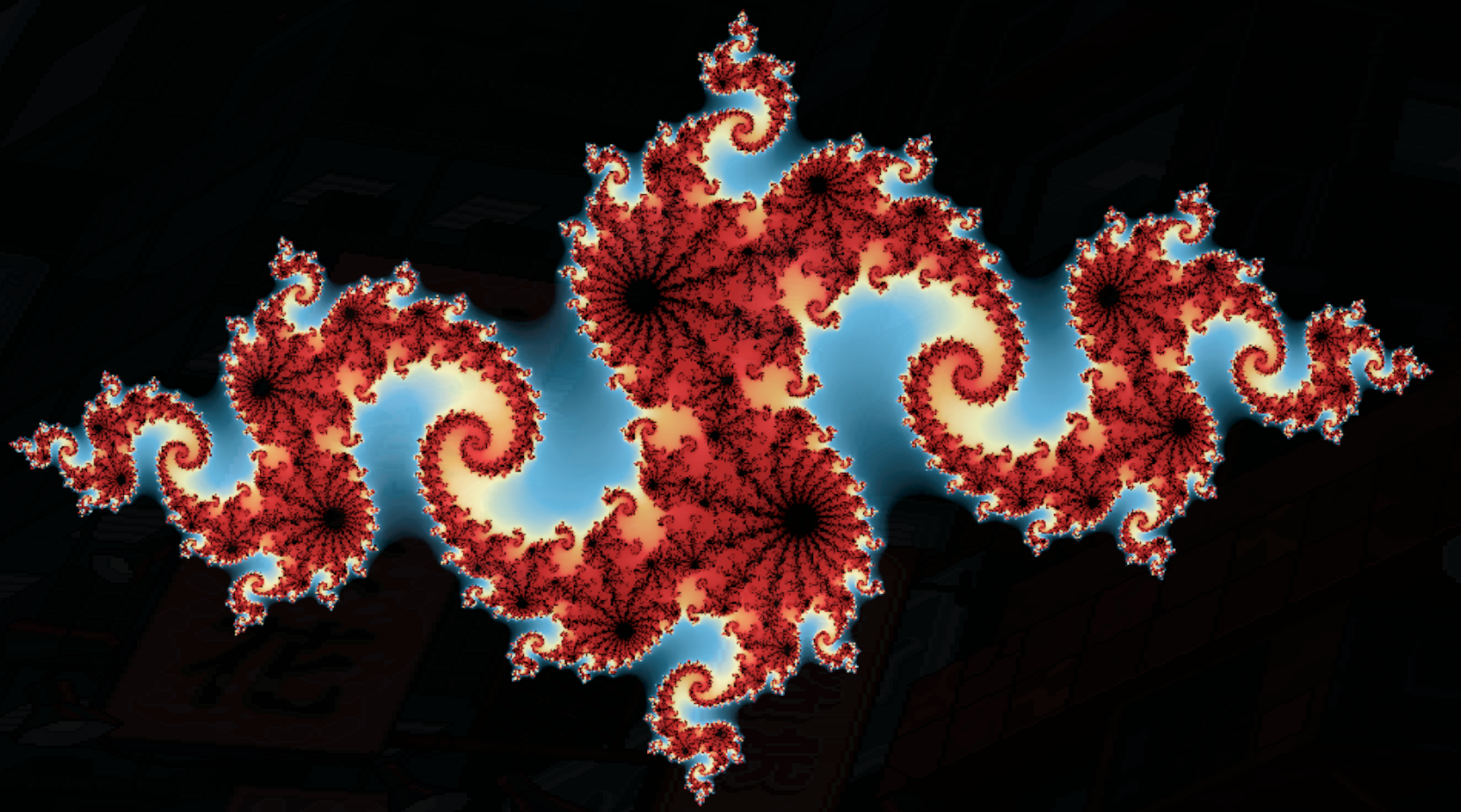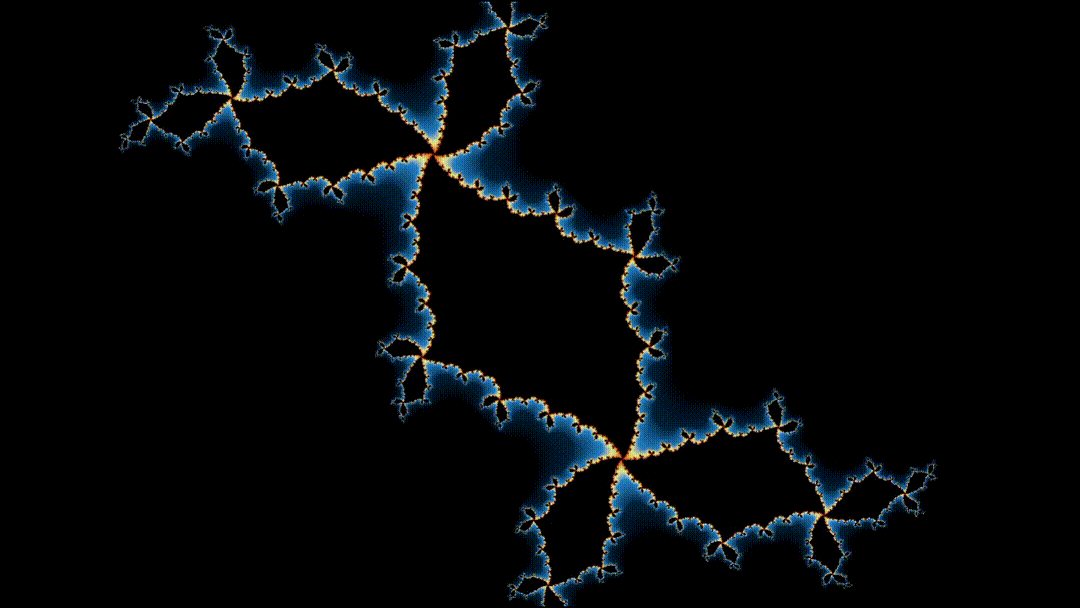Contents
This project's purpose is to create a visually captivating and interactive fractal explorer using Rust and the Bevy engine. It focuses on rendering Julia fractals, offering real-time interactions and visualizations.
The original version was implemented with wasm, but I have since moved to bevy, due to the tools available for expanding features and functionality.
This project is based off the super simple and fun tutorial that Tim McNamara did.
The primary goal of this project is to explore the capabilities of Rust and Bevy in creating high-performance, real-time graphical applications. We aim to:
- Create a dynamic fractal rendering engine using Rust.
- Utilize Bevy for real-time fractal visualization and interactions.
- Provide an educational and engaging experience for users to explore and learn about fractals.
-
Fractal Generation using Rust
- Implement Julia fractal generation.
- Optimize fractal generation for performance.
- Implement 'infinite zoom' functionality.
- Implement 'Zoom' functionality
- Implement return to 1.0x zoom functionality
- Add support for different fractal types:
- Add the Mandelbrot Set
- Add the Koch Snowflake
- Add the Barnsley fern
- Add the Sierpiński triangle
- Allow for multiple sets that can be rendered
-
Integration with Bevy Engine
- Setup Bevy to handle real-time rendering.
- Create interactive UI elements
- For fractal manipulation.
- For selecting fractal parameters
- For selecting fractal set
- Update to Bevy 0.13.0
-
Optimization and Enhancement
- Add color to rendering
- Model render color scheme selection
- Implement shader-based rendering for complex visual effects.
- Benchmarking Application for Bottlenecks
- Refactor Codebase for extensisibility
-
User Interaction
- Implement click to navigate.
- Click and Drag to move view
- Allow users to modify fractal parameters in real-time.
- Color pallette selection for fractal set colors
-
Educational Content
- Provide informational content on fractals and their mathematical significance.
-
Documentation
- Create thorough documentation for setup and usage.
- Document the mathematical concepts behind fractals.
- Better commenting for Documentation
- Project Documentation
-
Community Engagement
- Establish a platform for community feedback and contributions.
- UI Splash Screen
-
Web Assembly
- Setup application to compile to wasm and run in browser
-
Testing
- Implement Testing
- Unit Testing for code integrity
- Community testing for feedback and improvements
- Implement Testing
We welcome contributions from everyone, regardless of your experience level! Here's how you can help:
- Code Contributions: Check out our Issues for tasks needing help. Feel free to comment on an issue if you're interested, or submit a Pull Request with your changes.
- Testing: Help us test the application on different platforms and report any bugs or suggestions for improvements.
- Please submit an issue if you find a bug, suggestion for enhancement or anything else!
- Documentation: Assist in improving or translating the project documentation to make it more accessible.
- Educational Content: Contribute explanations, tutorials, or educational material on fractals and mathematics.
- Fork the repository.
- Clone your fork and create a new branch for your feature or fix.
- Commit your changes and push to your fork.
- Submit a Pull Request against our
Stagingbranch.
For more detailed instructions, check out our CONTRIBUTING.md guide.
Join our discussion platform on discord to connect with other contributors and discuss ideas, design decisions, and more.
Your contributions, big or small, are greatly appreciated and make our project better for everyone!

